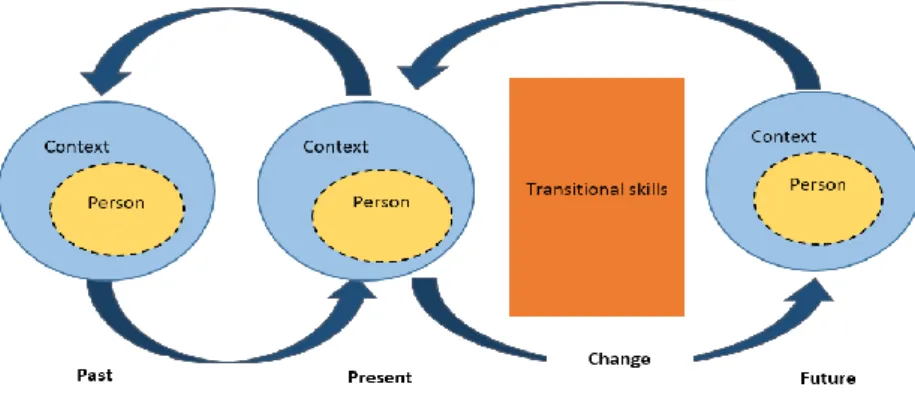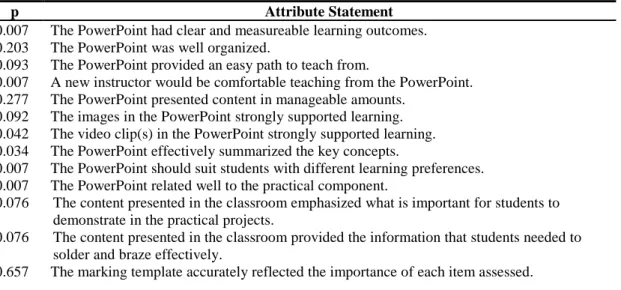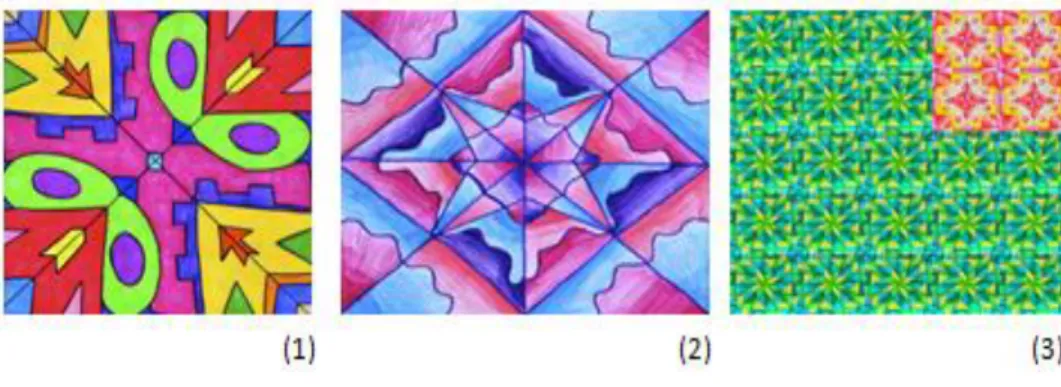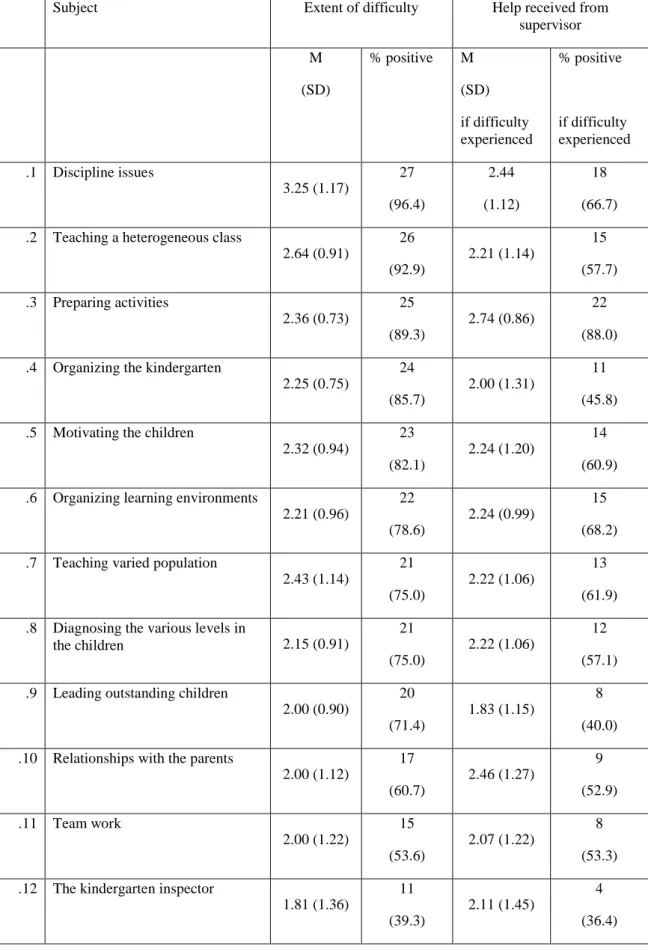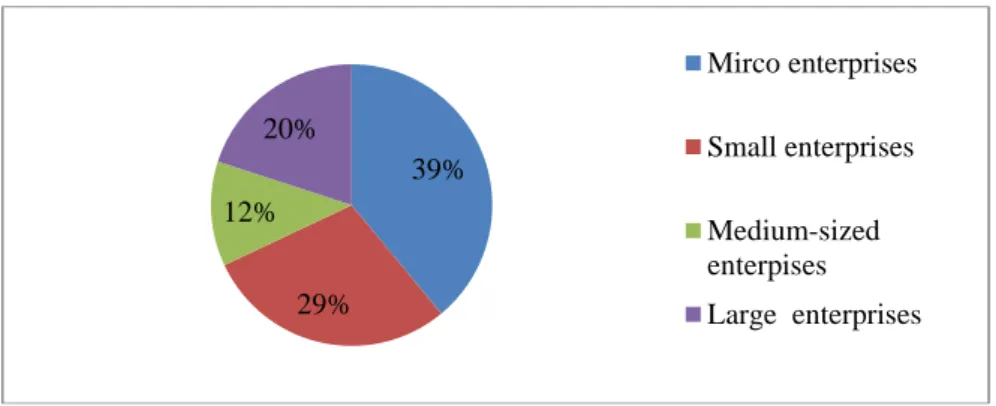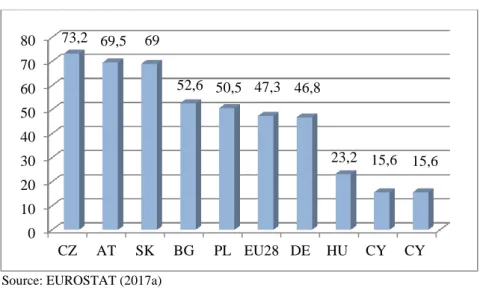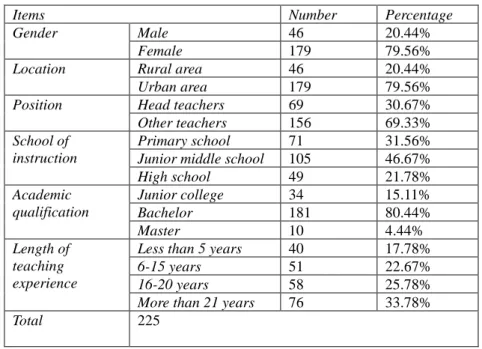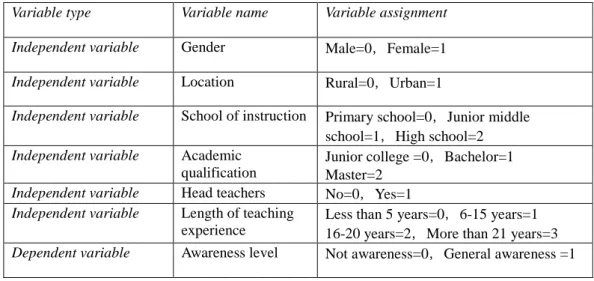Education and New Developments
2018
Edited by
Mafalda Carmo
Edited by Mafalda Carmo, World Institute for Advanced Research and Science (WIARS), Portugal
Published by InScience Press, Rua Tomas Ribeiro, 45, 1ºD, 1050-225 Lisboa, Portugal
Copyright © 2018 InScience Press
All rights are reserved. Permission is granted for personal and educational use only.
Commercial copying, hiring and lending is prohibited. The whole or part of this publication material cannot be reproduced, reprinted, translated, stored or transmitted, in any form or means, without the written permission of the publisher. The publisher and authors have taken care that the information and recommendations contained herein are accurate and compatible with the generally accepted standards at the time of publication.
The individual essays remain the intellectual properties of the contributors.
ISSN (electronic version): 2184-1489 ISSN (printed version): 2184-044X ISBN: 978-989-99864-8-0
Legal Deposit: 428062/17
Foreword v
Organizing and Scientific Committee vii
Sponsor and Media Partners xii
Keynote Lectures xiii
Index of Contents xvii
This book contains a compilation of papers presented at the International Conference on Education and New Developments (END 2018), organized by the World Institute for Advanced Research and Science (WIARS).
Education, in our contemporary world, is a right since we are born. Every experience has a formative effect on the constitution of the human being, in the way one thinks, feels and acts. One of the most important contributions resides in what and how we learn through the improvement of educational processes, both in formal and informal settings. The International Conference seeks to provide some answers and explore the processes, actions, challenges and outcomes of learning, teaching and human development. The goal is to offer a worldwide connection between teachers, students, researchers and lecturers, from a wide range of academic fields, interested in exploring and giving their contribution in educational issues. We take pride in having been able to connect and bring together academics, scholars, practitioners and others interested in a field that is fertile in new perspectives, ideas and knowledge. We counted on an extensive variety of contributors and presenters, which can supplement our view of the human essence and behavior, showing the impact of their different personal, academic and cultural experiences. This is, certainly, one of the reasons we have many nationalities and cultures represented, inspiring multi-disciplinary collaborative links, fomenting intellectual encounter and development. END 2018 received 624 submissions, from more than 50 different countries, reviewed by a double-blind process. Submissions were prepared to take form of Oral Presentations, Posters, Virtual Presentations and Workshops. The conference accepted for presentation 168 submissions (27% acceptance rate). The conference also includes two keynote presentations from internationally distinguished researchers, Prof. Dr. Zoltán Rónay (Ph.D, Associate Professor) Research Group for Higher Education and Innovation, Institute of Education, Faculty of Education and Psychology, Eötvös Loránd University, Hungary, and Prof. Dr. Gyöngyi Bujdosó (PhD, Senior lecturer) Faculty of Informatics, University of Debrecen, Hungary, to whom we express our most gratitude.
This conference addressed different categories inside the Education area and papers are expected to fit broadly into one of the named themes and sub-themes. To develop the conference program, we have chosen four main broad-ranging categories, which also covers different interest areas:
• In TEACHERS AND STUDENTS: Teachers and Staff training and education; Educational quality and standards; Curriculum and Pedagogy; Vocational education and Counseling; Ubiquitous and lifelong learning; Training programs and professional guidance; Teaching and learning relationship; Student affairs (learning, experiences and diversity; Extra-curricular activities; Assessment and measurements in Education.
• In PROJECTS AND TRENDS: Pedagogic innovations; Challenges and transformations in Education; Technology in teaching and learning; Distance Education and eLearning; Global and sustainable developments for Education; New learning and teaching models; Multicultural and (inter)cultural communications; Inclusive and Special Education; Rural and indigenous Education; Educational projects.
• In TEACHING AND LEARNING: Critical Thinking; Educational foundations; Research and development methodologies; Early childhood and Primary Education; Secondary Education; Higher Education; Science and technology Education; Literacy, languages and Linguistics (TESL/TEFL); Health Education; Religious Education; Sports Education.
• In ORGANIZATIONAL ISSUES: Educational policy and leadership; Human Resources development; Educational environment; Business, Administration, and Management in Education; Economics in Education; Institutional accreditations and rankings; International Education and Exchange programs; Equity, social justice and social change; Ethics and values; Organizational learning and change, Corporate Education.
learning and applications in Education nowadays. It includes an extensive variety of contributors and presenters, who will extend our view in exploring and giving their contribution in educational issues, by sharing with us their different personal, academic and cultural experiences.
We would like to express thanks to all the authors and participants, the members of the academic scientific committee, and of course, to our organizing and administration team for making and putting this conference together.
Hoping to continue the collaboration in the future.
Respectfully,
Mafalda Carmo
World Institute for Advanced Research and Science (WIARS), Portugal Conference and Program Chair
Conference and Program Chair Mafalda Carmo
World Institute for Advanced Research and Science (WIARS), Portugal
International Scientific Committee
Aaron R. Deris, Minnesota State University, USA
Abdurrahman Guelbeyaz, University of Salahaddin - Erbil, Irak
Aharon Gero, Technion - Israel Institute of Technology, Israel
Ahrar Husain, Jamia Millia Islamia, India Aistė Bartkevičienė, Social Educational Initiatives Centre PLUS, Lithuania Alan Singer, Hofstra University, USA Ali Baykal, Bahcesehir University, Turkey Ali Yildirim, Middle East Technical University, Turkey
Alice Stephens, Clark Atlanta University, USA Anca Draghici, Politehnica University
Timisoara, Romania
Anca-Olga Andronic, Spiru Haret University, Romania
Andis Klegeris, University of British Columbia, Canada
Andrea Hathazi, Babes-Bolyai University, Romania
Angela Hovey, Lakehead University, Canada Angela James, University of Kwazulu-Natal, South Africa
Angela Piu, University of Valle d'Aosta, Italy Aphrodite Ktena, Tei of Sterea Ellada, Greece
Belkis Tekmen, Baskent University / Gothenburg University, Turkey / Sweden Binnur Yeşilyaprak, Ankara University, Turkey
Brigita Janiūnaitė, Kaunas University of Technology, Lithuania
Burcu Koç, Sakarya University, Turkey Çağla Atmaca, Pamukkale University, Turkey Carolina Bodea Hategan, Babes-Bolyai University, Romania
Cezar Scarlat, University "Politehnica" of Bucharest, Romania
Charalampos Karagiannidis, University of Thessaly, Greece
Charles Elkabas, University of Toronto, Canada
Christian David Quintero Guerrero, Nueva Granada Militar University, Colombia Christine Besnard, Glendon College, York University, Canada
Chun Wu, Mount Marty College, USA Clara Barroso, University of La Laguna, Spain Cory A. Bennett, Idaho State University, USA Cristiano Luchetti, American University of Sharjah, United Arab Emirates
Daniela Pasnicu, Spiru Haret University, Romania
David Aparisi, University of Alicante, Spain Dee O'Connor, The University of Notre Dame, Australia
Dejan Hozjan, University of Primorska, Slovenia
Denise Whitelock, The Open University, United Kingdom
Diane Boothe, Boise State University, USA Dimitris Dranidis, University of Sheffield International Faculty, CITY College, Greece Disaya Chudasri, Chiang Mai University, Thailand
Donata Puntil, King's College London, United Kingdom
Dorina Anca Talas, Babes-Bolyai University, Romania
Douglas Baleshta, Thompson Rivers University, Canada
Ellen Whitford, Armstrong State University, USA
Erik F. Överland, Free University of Berlin, Germany
Francis Stonier, University of West Georgia, USA
Gabriel Dima, Innovate4Future, Center for Advances Educational Solutions and University Politehnica of Bucharest, Romania
Gilles Sagodira, University of Réunion Island, Reunion
Gina Chianese, Free University of Bozen, Italy Ginette Roberge, Laurentian University, Canada
Giuditta Alessandrini, Università degli Studi Roma TRE, Italy
Grainne M. O' Donnell, University College Dublin, Ireland
Haim Shaked, Hemdat Hadarom College of Education, Israel
Harvey Oueijan, Notre Dame University, Lebanon
Hava Vidergor, Gordon Academic College of Education / Arab Academic College of Education, Israel
Helin Puksand, University of Tartu, Estonia Ina Blau, The Open University of Israel, Israel Ioana Velica, Babes-Bolyai University, Romania
Iulia Mihalache, Université du Québec en Outaouais, Canada
Iulian Apostu, University of Bucharest, Romania
Jacquelyn Baker-Sennett, Western Washington University, USA
Jana Kapounová, University of Ostrava, Czech Republic
Jana Mazancová, Czech University of Life Sciences Prague, Czech Republic
Janaina Cardoso, Rio de Janeiro State University, Brazil
Jeanne Schreurs, Hasselt University, Belgium Jeannette Jones, Texas Lutheran University, USA
Joana Paulin Romanowski, PUCPR - Pontifícia Universidade Católica do Paraná, Brazil
Joanna Paliszkiewicz, Warsaw University of Life Sciences, Poland
João Batista Bottentuit Junior, Federal University of Maranhão, Brazil
Jose Augusto Oliveira Huguenin, Universidade Federal Fluminense, Brazil Juana Maria Sancho Gil, University of Barcelona, Spain
Judith Szerdahelyi, Western Kentucky University, USA
Julia Haba-Osca, Universitat de Valencia, Spain
Kadi Lukanenok, Tallinn University, Estonia Kamisah Osman, The National University of Malaysia, Malaysia
Karen Butler, Johnson C. Smith University, USA
Karim Moustaghfir, Al Akhawayn University in Ifrane, Morocco
Katarína Slobodová Nováková, University of Ss. Cyril and Methodius in Trnava, Slovakia Katerina Kabassi, Technological Educational Institute of the Ionian Islands, Greece
Kateřina Vitásková, Palacký University in Olomouc, Czech Republic
Kerstin Junge, The Tavistock Institute of Human Relations, United Kingdom Konstantinos Kalemis, National and Kapodistrian University of Athens / National Centre for Local Government and Public Administration, Hellenic Ministry of Education, Greece
Krystyna Nowak-Fabrykowski, Central Michigan University, USA
Kyparisia Papanikolaou, School of Pedagogical and Technological Education, Greece
Ladário da Silva, Universidade Federal Fluminense (UFF), Brazil
Laura Rio, University of Bologna, Italy Laurent Moccozet, University of Geneva, Switzerland
Leela Ramsook, University of Trinidad and Tobago, Trinidad and Tobago
Lefkothea Kartasidou, University of Macedonia, Greece
Léonard Kabeya Mukeba Yakasham, Université Pédagogique Nationale (ESURS ISTA - Kinshasa), Democratic Republic of the Congo
Liliana Dozza, Free University of Bozen, Italy Liliana Milevicich, Universidad Tecnológica Nacional, Argentina
Lina Kaminskienė, Vytautas Magnus University, Lithuania
Longzhi Yang, Northumbria University, United Kingdom
Loredana Terec-Vlad, Stefan cel Mare University from Suceava and Lumen Research Center in Social and Humanistic Sciences, Romania
Loreta Chodzkiene, Vilnius University and Lithuanian University of Educational Sciences, Lithuania
Luca Refrigeri, University of Molise, Italy Lucía Casal de la Fuente, University of Santiago de Compostela, Spain
Luis Gonzaga Roger Castillo, Universidad de Granada (UGR) / Centro de Estudios
Bizantinos, Neogriegos y Chipriotas, Spain Luminita Cocarta, Al. I. Cuza University of Iasi, Romania
Magdalena Mądra-Sawicka, Warsaw University of Life Sciences, Poland
Magdolna Chrappán, University of Debrecen, Hungary
Maria Moundridou, School of Pedagogical and Technological Education (ASPETE), Greece
Maria Schwarz-Woelzl, Zentrum fuer Soziale Innovation GmbH, Austria
Maria Carme Boqué Torremorell, Ramon Llull University, Spain
Maria Luisa De Natale, Università Cattolica Del Sacro Cuore, Italy
Marie-Claude Rivard, Université du Québec à Trois-Rivières, Canada
Marielle Patronis, Zayed University, United Arab Emirates
Marta Cabral, Columbia University, USA Marzena Wójcik-Augustyniak, Siedlce University of Natural Sciences and Humanities, Poland
Maura Sellars, University of Newcastle, Australia
Mdutshekelwa Ndlovu, Stellenbosch University, South Africa
Melissa Caspary, Georgia Gwinnett College, USA
Meral Aksu, Middle East Technical University, Turkey
Metaxia Pavlakou, Oxford Brookes University, United Kingdom
Milan Kubiatko, University of Zilina, Slovakia Mustafa Ozmusul, Harran University, Turkey Naseer Ahmed, Al Ghurair University, United Arab Emirates
Nazario Zambaldi, Free University of Bolzano, Italy
Nikolaos Marianos, Neuropublic SA / University of The Aegean, Greece
Nina K. Buchanan, University of Hawaii, USA Odeta Merfeldaite, Mykolas Romeris
University, Lithuania
Olga Chis, Babes Bolyai University, Romania Paola Damiani, University of Turin, Italy Pascal Marquet, University of Strasbourg, France
Pascalia Patsala, University of Sheffield International Faculty, Thessaloniki, Greece Patricia E. Reynolds, University of Mary Washington, USA
Pedro Canto, Universidad Autónoma de Yucatán, Mexico
Petros Kefalas, University of Sheffield International Faculty, Thessaloniki, Greece Pule Phindane, Central University of Technology, South Africa
Rasa Nedzinskaite, Lithuanian University of Educational Sciences, Lithuania
Razvan-Lucian Andronic, Spiru Haret University, Romania
Richard Walker, University of York, United Kingdom
Robert A. Fox, University of Hawaii, USA Romano Martini, Niccolò Cusano University, Italy
Rosanna Tammaro, University of Salerno, Italy
Rosemary Papa, Northern Arizona University, USA
Sam Ramaila, University of Johannesburg, South Africa
Seppo Sirkemaa, University of Turku, Finland Seth Agbo, Lakehead University, Canada Seweryn Spalek, Silesian University of Technology, Poland
Shakila Singh, University of Kwazulu Natal, South Africa
Sharon Jaggernauth, The University of the West Indies, Trinidad and Tobago
Sheryl Williams, Loughborough University, United Kingdom
Silvia Pokrivčáková, Trnava University, Slovakia
Simon Richir, Arts et Metiers Paristech (ENSAM), France
Soane Joyce Mohapi, University of South Africa, South Africa
Stefania Pinnelli, University of Salento, Italy Stephanie Linek, ZBW - Leibniz Information Centre for Economics, Germany
Stephen Hughes, University of Granada, Spain Surendra Pathak, Iase Deemed University, India
Susan Scott, Lakehead University, Canada Suzie Savvidou, The University of Sheffield International Faculty, CITY College, Greece Tatjana Portnova, Russian Center of The University of Granada, Spain
Tintswalo Manyike, University of South Africa, South Africa
Tracy Treasure, The University of Notre Dame, Australia
Valéria Oliveira de Vasconcelos, UNISAL - Centro Universitário Salesiano de São Paulo, Brazil
Vanja Bevanda, Juraj Dobrila University of Pula, Croatia
Verónica Marín Díaz, University of Cordoba, Spain
Vicente J. Llorent, University of Cordoba, Spain
Wendy Setlalentoa, Central University of Technology, South Africa
Yogesh Kumar Sharma, Government Shakamdhar PG College, Sambhar Lake, India Yonghuai Liu, Aberystwyth University, United Kingdom
SPONSOR AND MEDIA PARTNERS
Sponsor:
http://www.wiars.org
Media Partners:
KEYNOTE LECTURES
“RESPECT FOR HUMAN DIGNITY: AS A FRAMEWORK AND SUBJECT OF
EDUCATION IN THE LIGHT OF PRESENT CHALLENGES”
Prof. Dr. Zoltán Rónay
(Ph.D, Associate Professor)Research Group for Higher Education and Innovation, Institute of Education, Faculty of Education and Psychology, Eötvös Loránd University (Hungary)
Abstract
Near the third decade of 21st century, we must face many challenges, which affect our everyday life. Some of them belong to the technological development, and others are in relation to social and natural demands. Among them, such phenomena also appear, which are well-known in the school system, but their appearance transforms resulting from the aforementioned challenges. In the first case, digitalisation can be mentioned, which can be both a blessing and a curse: it promotes the education but can endanger the human relationships through isolation, and mobbing, bullying. In the second case, it is reasonable to talk about migration, including developing the aptitude to recognize real and false dangers; facilitating the social integration of the disadvantaged migrant children (and their family) in the school, the tools which can help them, and also the inclusive community. The third case includes the problem of both aggression and black pedagogy. Aggression is not a new phenomenon, but with the help of digitalisation, it can appear in new forms. Digitalisation makes the way of mobbing and bullying easier not just within the school, but for strangers out of school. Moreover, migrant children can be a new target for these actions. Finally about an old pedagogical problem: the phenomenon of so-called black pedagogy is connecting either to the assessment or disciplining in school.
If these symptoms affect either directly or indirectly the life of any child, the school must handle them. Many of the researchers investigate the phenomena mentioned above from the education science’s point of view. Many of the researchers develop pedagogical tools to answer to these challenges. The presentation offers a new perspective. It gives an overview of this topic, presenting (the respect for) human dignity on the one hand as a framework in education and as the subject of teaching on the other hand. Human dignity as a framework is especially relevant to interpersonal relations within the school, but it is also important as a subject of teaching and education. Namely, it is necessary to teach the student to be an empowered citizen, to own the ability of legal knowledge and to respect the rights of others. But to secure it, it is essential to prepare the future teachers to know their rights and the barriers. The presentation proposes a method, which will be applied from next semester for the teachers training programme at Eötvös Loránd University.
Keywords: Fundamental rights, aggression in school, black pedagogy, digitalisation, social integration.
Biography
Zoltán Rónay was born in 1976 in Budapest, Hungary. He graduated in 1999 as a lawyer at Eötvös Loránd University Faculty of Law. He is Ph.D. on law and political sciences (University of Szeged Doctoral School of Law and Political Sciences, 2017, the title of his dissertation: Individual and corporate liability within the governance of higher education institutions). Before getting his master degree, he did his practise at the Department of Constitutional Affairs in the Office of the President of the Hungarian Republic.
After his studies at the university, he began to work as a junior clerk in the Rector’s Office. Later he was appointed to the head of Department of Law, Administration, and Human Resources Management. At the
same time, he was working as lawyer candidate besides the distinguished Hungarian lawyer and legal lecturer, the late Daisy Kiss (Dr. Kiss Daisy Law Office). After the obligatory practical work and passing specialist examination, he became solicitor and partner of Dr. Kiss.
In 2006 he successfully applied for secretary general of Eötvös Loránd University. He was re-elected in 2011. His appointment of secretary general was recalled in 2015 when the Parliament reorganised the governing system of Hungarian state higher education institutes on government’s motion. This amendment inaugurated the legal institute of the chancellor.
As an additional activity at the university, he is the university commissioner responsible for coordination of organization matters of integration between the Faculties in Szombathely and the Savaria University Centre of University of West Hungary and Eötvös Loránd University, during this project.
As a complementary activity, he is the President of Student Academic Appeals Committee. This appointment is pursuance of the work he carried on as secretary general ex officio. Except for this activity, his work in connection with the university leadership was ended in summer 2017.
In 2017 he successfully applied for a senior research fellow position at Eötvös Loránd University Faculty of Education and Psychology, Institute of Education. He joined the Research Group for Higher Education and Innovation. In the beginning of 2018, he became an associate professor at the same place.
As a university lecturer he regularly has courses in Pedagogy BA (Legal background and control of education and school; Educational governance and regulation), Educational Science MA (Education, Economy and Law; Leadership of institutions of higher education), Community Coordination BA (Foundations of Jurisprudent), Sports manager and recreation and health promoter BSc (Elementary Political Knowledge). He is a supervisor in Education Doctoral Programme. Apart from these regular courses, he has founded several optional courses: Liability of university executives; The legal and ethical frameworks of the teaching profession and Legal Frameworks of Education Research in Education Doctoral Programme. He elaborated the following courses in Human Resources BSc: Elementary knowledge about State and Law; Economic Law; Labour Law I-II.
He is a co-founder of the Education Management Specialisation of Educational Science MA. He is officially responsible for the following courses: Educational governance and regulation; Leadership of institutions of higher education; Strategic Management in Higher Education; Operation and Management of (Educational) Organisations; Internship; as well as for all the courses founded and elaborated by him. His educational activity is not unprecedented. After his master degree, he instantly started to teach at Eötvös Loránd University. He was a part-time lecturer at Department of Civil Process Law and Department of Constitutional Law and in several programmes of the following courses: Civil process law, Civil process Law in connection with real properties at Institute for Postgraduate Legal Studies. Because of the amount of his work as secretary general, he was forced to abandon these activities. He has been committed to supporting talents. He has led a civil law course in Bibó István College since 2005. His student won 2nd prize in the 27. National Conference of Scientific Students’ Associations (“OTDK”) in the section of law and politics.
His scientific interest ranges over the law and legal history of education; related to this fields the labour law, administrative law and civil procedure in education. His main research field is the responsibility and liability in operation of higher education. Apart from these fields he handles the law in teacher’s training and education, especially with teaching and developing legal knowledge in teachers training.
He regularly publishes. His monography (working title is Legality and Ethics during the Teacher’s career) is under editing.
He is organiser and participant of several scientific sessions.
He organised the Civil Procedure of 21st century Conference and The electronic payment order and
the notarial function; both for the Hungarian Lawyers’ Association Section for Civil Process Law. He gave presentations in several scientific programmes:
• About the secretary generals (Eötvös Loránd University Faculty of Education and Psychology, Higher Education Management Workshop) – English title of presentation: The role of secretary general in the leadership of higher education institutes;
• Autonomy in public (constitutional) law science (Hungarian Academy of Sciences, Centre for Social Sciences Institute for Legal Studies) – English title of presentation: The position of Autonomy of Higher Education in Public Law;
• Hungarian Higher Education Conference 2017 (Corvinus University Budapest, Center for International Higher Education Studies) – English title of presentation: Sector’s control and management in light of managerial responsibility;
• The 16th Conference on Educational Assessment – CEA 2018, Szeged, Hungary (The Institute of Education, the Doctoral School of Education at the University of Szeged, the MTA-SZTE Research Group on The Development of Competencies and the Educational and Psychological Committee of the Hungarian Academy of Sciences in Szeged) – English title of presentation: The pedagogical idea of pupils’ assessment in the light of Act on Public Education; • Education – Economy – Society: Hungarian Conference on Educational Research –
HuCER 2018, Székesfehérvár, Hungary (HERA – Hungarian Educational Research Association) – English title of presentation: Wondering, what the consistory is;
• Education in Modern Society: XVI Annual International BCES Conference (Bulgarian Comparative Education Society) – Title of presentation: Centralizations and Autonomies: The Delimitation of Education by the Hungarian Government.
He is a member of Scientific Committee of the Conference of 2nd Danube Conference for Higher Education Management: In search of excellence in higher education (Corvinus University of Budapest and Ulm University), which planned date is late November in 2018.
Several professional bodies and projects count on his expertise. As secretary general, he was the president of Hungarian Rectors’ Conference Collegium of Secretary Generals (Committee of Secretary Generals and Office Heads) between 2010 and 2015. As an additional professional public activity, he was a permanent guest on Round-table for Higher Education, as well as a delegate of Hungarian Rectors’ Conference on Round-table for Higher Education Expert Team for Students’ Responsibility in 2013. From 2007 he had been the secretary of Hungarian Lawyers’ Association Section for Civil Process Law for five years. Today he is a member of Platform for Training in Economic Science, previous he was an expert team member of a project called „Reorganization of training in economic science” and co-editor of working paper titled “Possible directions of reorganization of training in economic science”.
He is the project manager for the project “Anxiety versus ego strength – Investigating the ingredients of perceived safety: development of intervention tools and programmes for different actors and institutions functional at various segments of social safety”, which has just won with his partial management almost 800.000,- Euros subsidy from the Hungarian State.
He is member of HERA – Hungarian Educational Research Association as well as Hungarian Academy of Sciences Public Body IX. Section of Economics and Law Committee on Legal and Political Sciences. He speaks and publishes – apart from his native Hungarian language – in English and German.
More information on the internet:
http://www.ppk.elte.hu/munkatarsak/Ronay_Zoltan https://www.researchgate.net/profile/Zoltan_Ronay
“SMART INTERNET, SMART APPLICATIONS, SMART EDUCATION”
Prof. Dr. Gyöngyi Bujdosó
(PhD, Senior lecturer)Faculty of Informatics, University of Debrecen (Hungary)
Abstract
Education has to always change because the environment and the conditions are changing in every second. Students live a smart technological life, they do not only use technology, but they live it. Education must follow the achievements of sciences, and it has (or should) use modern technology. New smart devices and software applications must be applied for improving the educational efficiency not only because education needs to transfer information faster, but because they may fit the educational methods into the students’ everyday life. Students have smart devices, spend their free time with smart applications in smart virtual environments. When they step or look out from their ‘normal’ milieu in, e.g., a scholar environment, they find themselves in a little bit strange, very slaw, quite simple and not sufficiently motivating environment. How can we motivate these students? How can we involve them in tasks that require long and deep concentration? What kind of software and hardware technologies should we use for making the learning processes more motivating? In the other hand, do students have suitable and sufficient knowledge to use new technologies – others then the smart phones and the well-known applications – without pre-training them? Does education pay attention to train their students to be prepared for the new technological developments?
We have many adequate questions concerning smart education. There are number of surveys with the aim to discover the students’ needs and the effectiveness of the applied new educational methods on each level of education. All of them can help us to get closer to choose optimal solutions for our educational processes.
In this presentation we attempt to discuss about some important concepts and some major definitions of this field. We present some good practices that can bring closer the educational methods and processes to the students’ everyday operations. That is one of the most important and sometimes extremely complex task for educators of the future.
Short Biography
Gyöngyi Bujdosó, PhD, is a senior lecturer at the Faculty of Informatics, University of Debrecen in Hungary. She has MSc degrees on Mathematics, Computer Sciences and Chemistry, DEA and PhD in Informatics.
She worked as a database programmer and as the copy-editor of some scientific journals. Later she became a lecturer at UD. She has had courses in several fields of Computer Sciences.
She is the E-learning Coordinator of the university’s Teacher Training Center, a member of the Women in Informatics Research and Education at Informatics Europe, and a regional representative of the Women in Sciences Association.
Her research interest includes Electronic Teaching, Information Transfer in Virtual Reality, IoT and ICT in Teacher Training, E-Learning, Designing and Developing Digital Curricula, Digital Literacy, Gender Studies.
More information on the internet: http://inf.unideb.hu/hu/bujdoso.gyongyi
INDEX OF CONTENTS
ORAL PRESENTATIONS
Teachers and Students
LIVE2WORK Project: Increasing the Chances for Successful Integration of People in Situations of Professional Vulnerability
3 Joana Carneiro Pinto, Ana Cecília Cameira, Rosa Rodrigues, & Helena Rebelo Pinto
A Comprehensive Approach to Leadership in Education 8
Marie Josée Berger, Morag Gundy, & Edith Dumont
The Effect of Collaborative Learning Activities on High School Student Beliefs, Confidence, and Learning Strategies in Chinese Language Instruction
11 Lih-Ching Chen Wang, & Yuan Meng
Comparing Traditional Learning Materials with those Created with Instructional Design and Universal Design for Learning Attributes: The Instructors’ Perspective
16 Peter Fenrich, Tim Carson, & Mark Overgaard
Effecting Peak Performance under Pressure: Mental Practices of Elite Athletes Successfully Applied in Teacher Training
21 David Hill
Battling Zero-Tolerance in Schools and the School-to-Prison Pipeline 24
Alan Singer
Differentiate to Include. An Example of Didactic Intervention in a Lower Secondary Classroom
29 Clarissa Sorrentino, & Stefania Pinnelli
How Vet Teachers in Hungarian Vet Schools Conceptualise their own Professional Development
34 Eszter Bükki, & Anikó Fehérvári
Developing a Universal Talent Score to Assess Teachers' Talent in Higher Education 35 Reem Abi Abdallah, & Cezar Scarlat
Living in Spain: Experiences of Irish Erasmus Students 40
Rosario Hernández
Intercultural Ambassadors at Schools and in Teacher Education 45
Anne Julia Fett, & Peter Grüttner
To Use or Not to Use? Questioning while Conducting a Delphi-Type Exercise in Higher Education
49 Cezar Scarlat, & Reem Abi Abdallah
Parents’ and Communities’ View and Attitude towards Teachers in Rural Malawi 54 Gulla Erlendsdóttir, Allyson Macdonald, Svanborg Rannveig Jónsdóttir, & Peter Mtika
Challenges Confronting Kindergarten Teachers in their First Year of Teaching 55 Eitan Simon, & Aviva Dan
How is Bullying Portrayed in a Collection of Selected Picture Books? A Content Analysis 60 William P. Bintz, & Lisa Ciecierski
Structural and Content Transformation of the Vocational Training System in Hungary after 2010
65 Éva Farkas
The Role of Teaching Practicum on the Professional Development of Mathematics Student Teachers from the Central University of Technology, Free State
70 Ratokelo Willie Thabane
The Mathematical Skills and Time Available in Standardized Tests 75
Marina De Nunzio, Clarissa Sorrentino, & Stefania Pinnelli
How Informed are our Educators? A Survey Study on the Awareness of School Bullying among Primary through High School Teachers in China
80 Wang Qi-Ran
Investigating First-Year Physics Students’ Conceptual Understanding of Vectors 85 Itumeleng B. Phage
Effective Provision of Feedback on Assignments from a Large Class 90
Yonghuai Liu, Yitian Zhao, Ran Song, Peter Yuen, & Honghai Liu
The Bilingual Teaching Method in Elementary School: A Case Study at “Raffaello Sanzio” Elementary School in Trento
95 Cristina Rebek
A Path of Subtle Change
A Qualitative Study on the Process of Self-regulated Learning in Classroom Situation
99 Yiying Liu
Teachers as Hackers- Implications for 21st Century Teacher Education 104
Maya Wizel
The First Teaching Experiences of Pre-Service Computer Science Teachers 105 Serhat Bahadir Kert, & Asiye Kert
Projects and Trends
Online Video in Computing Classes improves Thai Students’ English 106
Kewalin Angkananon, & Mike Wald
Using Speech Recognition Transcription to Enhance Learning from Lecture Recordings 111 Mike Wald
A Comparative Study of Online and Traditional Formats for Language, Literacy and Culture
116 Diane Boothe
The Expansive Learning Theory at the Service of Parent-Teacher Collaboration 121 Rollande Deslandes, & Sylvie Barma
Entropy and Difficult Classes. Analysis in Main Components of the Quality of School Life in Classes with ADHD Students
126 Stefania Pinnelli, & Maria Lucia De Nitto
Thinking Outside the Classroom: Engaging Young People in Learning through ‘Not-School’ Programs and Pedagogies
131 Thomas Stehlik
Audio Description for Inclusion. Listening Comprehension and Ability of Empathy in Primary School Classes
136 Stefania Pinnelli, & Andrea Fiorucci
International Telecollaborative Project-Based Learning for Cultivating Global Competence
141 Kumiko Aoki, & Pal Molnar
Open Content, OER Repositories, Interactive Textbooks, and a Digital Social Platform: The Case of Greece
146 Elina Megalou, & Christos Kaklamanis
Collaborative Online International Learning 151
Susan Oaks, & Deborah Smith
Countries Afflicted by Violence and Anomie in Need of a Revised Approach to Citizenship Education
155 Johannes L van der Walt
Promoting Mobile Learning through the Establishment of a Mobile Learning Community 160 Lixun Wang
Challenges Faced by Female Learners Following an Engineering Career in South Africa 165 Corina Mateescu, & Dorina Ionescu
Science Teacher Development in a Global World: A Study Centred in Master Dissertations in Angola
170 Nilza Costa, Betina Lopes, & Filipe Matias
Citizen Science: Taking Off, Taking On, Taking Over 175
Pammla Petrucka, Sandra Bassendowski, Phil Woods, Tasha Epp, & Allan Hundeby
New Contexts of Foreign Language Learning at the University: Microlearning and Social Networks
179 Pavel Brebera
Open Badges – A New Way to Demonstrate Skills and Learning 184
Jenni Meriläinen
Management of Behavior Problems of Children with and without Disabilities: Greek Parents’ Opinions
189 Pagona Leonidou, & Lefkothea Kartasidou
#Disrupting#Postsecondary#Teaching 194
Sandra Bassendowski, & Pammla Petrucka
Pedagogical Effects of Animal-Assisted Interventions in Classroom Environment 198 Barbara Di Blasio, & Marcell Molnár
Defining Components and Measuring Outcomes of a Hybrid Study Abroad Program 203 Quinn Shao
Defining Transdisciplinarity 204
Design Thinking Applied in Higher Education
D-Think, a European Project for Innovating Educational Systems
209 Katja Tschimmel, & Joana Santos
The eHealth Experience with Post-Secondary Students Majoring in Healthcare Disciplines on a MOOC: Opportunities and Challenges of Self-Directed e-Learning for ESL Learners
214
Carrie Ho-Yi Lau
Are Entrepreneurship and Digital Competencies False Friends? A Design Thinking Case of the Intense e-Tool
215 Patricia Huion, Tin Van Den Putte, Micheline Broekmans, & Chris Huybrechts
Working together across Educational Levels to Increase Students’ Motivation 216 Pilar Alberola Colomar, & Raquel Iranzo Fons
A Twist in the Traditional First Year Chemistry Lecture: Adopting Academic Support Principles
221 Vino Paideya
Service Learning Experience and the Professional and Personal Development of Singapore Student Teachers
226 Soo Yin Tan, & Shi Hui Joy Soo
Innovation through Flipped Model of Learning: Enriching Students’ and Instructors’ Experience
229 Pary Fassihi, & Maria Zlateva
Peer Tutoring: Promoting Wellbeing by Encouraging Cooperative Attitudes within the School Community
234 Francesca Schir, & Demis Basso
Multisensory Class Room as a Pedagogic Innovation 239
Minttu Räty
Organizational Structure for 21st Century Higher Education Institutions: Meeting
Expectations and Crossing Challenges
244 Rumpa Roy, & Hesham El Marsafawy
Institutionalization of Academic Strategies for the Retention of University Students: Perceptions from Chile
249 Carmen Araneda-Guirriman, & Liliana Pedraja-Rejas
Teaching and Learning
Investigating EFL University Students' Writing Perceptions Via Implementing Process/Genre Approach in a Blog-Based Classroom
254 Wei-Yu Chang, & Caroline Walker-Gleaves
Validation of Prior Learning in the Hungarian Higher Education System 259
Anett Jolán Kovács
Questions Children Ask 264
Krystyna Nowak-Fabrykowski
Social Studies, Common Core, and the Threat to Constructivist Education 269 Alan Singer
A Study on Cooperative Learning of Students Participating in Liberal Arts Class of Multicultural Education
274 Youngsoon Kim, Gi Hwa Kim, & Youngsub Oh
The Critical Reflexivity of Field Social Workers who are Working with Families: Recommendations for the Educational Process
279 Kateřina Glumbíková, Soňa Vávrová, & Alice Gojová
Lectures, Attendance and Engagement: Can we Reverse the Decline? 284
Joanne Smailes, & Anna Heyman
L2-Proficiency and Mathematic Competences of 10-12 Year-Old Children in Swiss Two-Way Immersion Elementary School Project FIBI
289 Emile Jenny
Supporting Learner Autonomy in Higher Education 294
Jitka Hlouskova
“I’m Not Cut Out to Be a Teacher”: Reflections on an English Teacher Training Program 298 Hideyuki Kumaki
How to Build a Research Culture and Ethos: From Students to Novice Researchers 302 Paschalia Patsala, & Petros Kefalas
Social Networks as New Places for Informal Learning: A Grounded Theory Analysis in Higher Education Students Communities
307 Marco Perini, Chiara Barile, & Monica Pentassuglia
Cognitive Development of Student-Sportsman – Way for Champions 312
Tatiana Anisimova, Ninel Olesich, & Irina Samuylova
The Challenge of Fostering Equity in a TESOL Graduate Course: A Participatory Action Research Project
317 Janaina Cardoso
The Effectiveness of Demonstrational Method in Promoting Student Centred Method: A Case Study
322 Khojane Geoffrey Mokhothu
Current Situation in the Research of Teaching English Grammar in Slovakia 326 Gabriela Lojová
The Influence of GPA on Achievement Emotions 327
Fitim Uka
A Statistical Analysis on the Factors Influencing Mathematics Anxiety in Undergraduate Students of Mathematics and Engineering
331 Mahshid Farjadpour, & Carlos Fresneda-Portillo
A Multi-Element Approach to Improving Academic English Writing Instruction in Japan 336 Richard S. Lavin
Maths Problems in Pseudo-Codes Compared to Computer Usage 341
Piroska Biró, & Mária Csernoch
Flipped Classroom, C.L.I.L. and Classroom Setting: Innovative Learning Experiences in an Italian Primary School Class
346 Alessandra Imperio
Organizational Issues
The Implications of Arts Education Acts for Professional Music Training Programs: The Tut Experience
351 Hua Hui Tseng
Education Reform in Trinidad and Tobago through the Lens of Complexity Theory 356 Jeniffer Mohammed
Instructional Management of Teaching Staff in Teacher Training Institutions, LAO PDR 361 Thongsay Phongphanit
Improving Articulation Between TVET Colleges and University Engineering Programmes in South Africa
366 Bruce Graham, Darren Lortan, Savathrie Maistry, & Mark Walker
A Meta-Analysis on the Relationship between Character Education and Student Achievement and Behavioral Outcomes
371 William H. Jeynes
Characterization of the “Education & Education Research” Journals Included in the JCR 374 Julia Haba-Osca, Francisco González-Sala, & Julia Osca-Lluch
Creativity at School? - Performance Dimensions in the Case of Polytechnic Higher Education
379 Margarida Piteira
The Different Effects of Voluntary and Involuntary Activities on Positive Affect: Flow as a Moderator
384 YooHan Jeon, InSoo Choe, Seung-hee Lim, SunJin Kim, InYoung Park, JinGyeong Jeong,
YunKeong Han, & BoKyeong Kim
Socio-Cultural Experiences of International Students in Ireland and the Impact these Experiences Have on their Self Identity
387 Sharon Harris-Byrne
Comparison of Singapore, Japan, Estonia and Turkey Based on Educational Leadership and School Governance According to Pisa 2015
392 Gamze Giray, & Gülsün Baskan
Promotion of Entrepreneurship Education in Southeast Asia 393
Patreeya Kitcharoen
Leadership Styles and Quality in Universities: Evidence from Chile 398
POSTERS
Teachers and Students
Perceived Self-Efficacy of Mentors Accompanying Beginning Teachers in an Induction Program in Canada
405 Nathalie Gagnon
A Survey of the Students’ Perception of the Value of Undergraduate Physics Practicals at a South African University
406 Leelakrishna Reddy
Teaching Better Reading Skills in Vocational Training: What Reflexive Journals Reveal 409 Chantal Ouellet, Amal Boultif, & France Dubé
Professional Well-Being: The Point of View of Physical Education Teachers 412 Sacha Stoloff, Maude Boulanger, Julien Glaude-Roy, Paule Miquelon, & Marie-Claude Rivard
A Study of Vocabulary Learning Strategies Used by High and Low Proficiency EFL Learners
415 Patsawut Sukserm, & Chatraporn Paimsai
Classroom Management in Physical Education: What and How? 418
Sacha Stoloff, Claudia Verret, Jean-Christophe Couturier Cormier, & Jean Lemoyne School Gardening as School Community Engagement and Academic Service Learning Project
421 HwaChoon Park, & Hyo Jeong Kim
“Layered Learning” in Inter-Professional Education: Through the Lens of Student Filmmaking
423 Jacquelyn Baker Sennett
Learners’ Views of the Teacher Attributes in Contributing to Meeting the Challenges of the Caps Curriculum in Physical Science
426 Leelakrishna Reddy
Investigation and Assessment of Students’ Manipulating Data and Chance Ability 429 Chien-Ming Cheng, & Yuan-Hong Lin
Projects and Trends
Tele-Medical Education Used to Train Health Professionals in Tibet, China 430 Linlin Wang, Xia Cai, & Hong Deng
Entrepreneurial School: A Platform for Realization of Interdisciplinary Projects 431 Maude Boulanger, Marie-Claude Rivard, & Rollande Deslandes
Parental Sense of Community and Perception of Educational Community: The Mediating Role of Social Competence
434 Hee-kyung Park, & Kai-sook Chung
Improving the Social Inclusion of Disadvantaged Learners by Using a Personalized Software
437 Gabriela-Eugenia Iacobescu
Challenge in Classrooms: Moral Reasoning and Emotional Competence 440 Carmen Mañas
Preparatory Study of Indigenous Education through Traditional Color Names 443 Shin’ya Takahashi, & Noriko Aotani
Effects of Using Video Modelling with Handheld Devices on Solving Math Problems Abilities of the Students with Intellectual Disability in Elementary Schools in Taiwan
446 Chulung Wu
The Use of iPad for Supporting Instructional Practices in Vocational Education and Training Centers: Searching for Effects on Students Achievements
447 Marco Perini, Roberto Franchini, & Monica Pentassuglia
Investigation of Using Video Modeling to Improve the Math Problems Solving Skills of Integer Multiplication and Division of the Students with Learning Disabilities in Elementary Schools in Taiwan
450
Chulung Wu, & Yi-Chun Hsu
A Quiz Tool for a General Location-Based m-Learning Framework 451
Korlan Zhumabekova, Mona A. E. Rizvi, & Dinara Assan
Teaching and Learning
Research on Teaching and Learning in Sichuan University’s Immersion Program, China 454 Songyan Wen, & Linyao Jiang
Sensitization Training and Healthy Environments: Impacts Perceived by the Stakeholders 457 Marie-Claude Rivard, Maude Boulanger, Sacha Stoloff, François Trudeau, & Sylvie Ngopya
An Institutional Strategy Template to Optimally Enhance the Employability of Students through Work Integrated Learning
460 Henri Jacobs, & Albert Strydom
Perceived Acceptance of Family on Binge Drinking and Cannabis Consumption among Spanish University Students
463 Mª Fernanda Páramo, Mª Soledad Rodríguez, Carolina Tinajero, José Manuel Pérez,
& Fernando Cadaveira
Is the Pen Still Mightier than the Keyboard for Writing? A Comparative Study in Elementary School
466 Natalie Lavoie, & Joane Deneault
Binge Drinking, Cannabis Consumption and Adaptation to University in Spanish Students
469 María Soledad Rodríguez, Fernando Cadaveira, Carolina Tinajero, José Manuel Pérez,
& María Fernanda Páramo
Problem-Based Learning as a Motivating Strategy for Studying Metabolism 470 Ángel Luis García-Ponce, Beatriz Martínez-Poveda, Ángel Blanco-López,
Ana Rodríguez Quesada, Fernanda Suárez, Francisco José Alonso Carrión, & Miguel Ángel Medina Torres
The Differences of the Family Strength According to Cluster Types Based on the Family Ritual of Families with Children in Early Childhood
473 Kai-Sook Chung, Hwan-Hee Son, & Gab-Jung Yoon
A Practice Project to Prevent the Cookbook Model as Modus Operandi for Biochemistry Laboratory Learning
476 Ángel Luis García-Ponce, Beatriz Martínez-Poveda, Ángel Blanco-López,
Miguel Ángel Medina Torres, & Ana Rodríguez Quesada
Knowledge of Kosovar Adolescents in Determining Emotions Based on Feelings 479 Valmira Xharavina, Rudine Fetahaj, & Fitim Uka
Learning Contract, Co-Operative and Flipped Learning as Useful Tools for Studying Metabolism
482 Beatriz Martínez-Poveda, Ángel Luis García-Ponce, Ángel Blanco-López,
Ana Rodríguez Quesada, Fernanda Suárez, Francisco José Alonso Carrión, & Miguel Ángel Medina Torres
Organizational Issues
A Jamaica Study Abroad Program Offered at an HBCU: Who, What, How 485
VIRTUAL PRESENTATIONS
Teachers and Students
How to Effectively Develop Faculty Mentorship Programs 489
Kelly M. Torres, & Aubrey Statti
Building Interpersonal Relationships in an Adult Online Learning Community 492 Sylvia Harkins, & Brenda Combs
Perceptions of South African First Year Physics Students on the Efficacy of Laboratory Practical Work
495 Sam Ramaila, & Leelakrishna Reddy
Reframing Discipline: Connecting with Every Child 499
Sylvia Harkins
South African Science Students’ Self-Efficacy Beliefs – A Case of Physics Learning 502 Sam Ramaila, & Leelakrishna Reddy
Interpersonal Functioning in Future Preschool Spanish Teacher 506
Elena Escolano-Pérez, Mª Ángeles Bravo-Álvarez, & Marian Acero-Ferrero
Work Ethic of South Koreans for Levels of Education, Occupation, and Employment Status
510 HwaChoon Park
Executive Functioning in Autism Spectrum Disorder: From Theory to Real World 515 Marian Acero-Ferrero, Elena Escolano-Pérez, & María Ángeles Bravo-Álvarez
Children Theoretical Framework to Learn Computational Thinking 518
Kilian González, Constanza Rubio, & Mª Olga Escandell
Analyzing the Impact of Leveling Mathematics Courses over Students’ Performance in Later Subjects
523 Irma Ardón-Pulido, Josué Figueroa-González, Beatriz A. González-Beltrán,
Silvia González-Brambila, & Lourdes Sánchez-Guerrero
Assessment of Physics Practical Work Using Innovative Computer-Based Technology System
528 Sam Ramaila, & Umesh Ramnarain
Professional Identity Construction and Socialization among Public Relations Students in United Arab Emirates
532 Sandra L. Braun, Mohamed Ben Moussa, Wided Dafri, & Ana Stranjančević
Academic Performance as an Indicator of Students’ Preparedness for University Study: A Case of Physics
537 Sam Ramaila, & Leelakrishna Reddy
Projects and Trends
Working Emotions with ASD Students: Developing Emotional Skills with Educational Software
542 Gonzalo Lorenzo Lledó, Asunción Lledó, Graciela Arráez-Vera, Alejandro Lorenzo-Lledó,
Infant School Degree Students' Perception of the Flipped Classroom Model 547 Ana Mª Ortiz Colón, Miriam Ágreda Montoro, & Javier Rodríguez Moreno
Digital Art Therapy Educational Applications for Autism Spectrum Disorder (ASD) Population
552 Jorge Fernández Herrero, & Gonzalo Lorenzo Lledó
Using CAI for Improving Academic Skills of Students with Special Needs 557
Haya Shamir, Erik Yoder, David Pocklington, & Kathryn Feehan
Open Air Educational Spaces and Learning Environments 562
Raffaella C. Strongoli
Social Coping Strategies among Gifted Boys and Girls 567
Eva Machů, & Ilona Kočvarová
Environmental Education in Ecuador: Challenges and Transformations 572
Javier Collado-Ruano
A Problem-Based Learning Approach to Diversity 577
Peter Stevenson, & Rita Day
Disability in the Syllabus: Exploring Teachers’ Willingness, Educational Strategies and Teaching Mediators
582 Nicole Bianquin, & Fabio Sacchi
Long-Term Effects of CAI for Pre-Kindergarten, Low Socioeconomic Status Students 587 Haya Shamir, Erik Yoder, David Pocklington, & Kathryn Feehan
Strategies and Resources for all? Attention to Diversity in the Compulsory Teaching of Southern Spain
592 Francisco Javier García-Prieto, María Inmaculada Iglesias-Villarán,
& Manuel Delgado-García
"Deaf Learning": Using a Visual Method to Teach Written Language to the Deaf 597 Marlene Hilzensauer, Klaudia Krammer, Laura Volpato, & Melanie Chan
Conceptions About Facebook Uses in Higher Education 602
Manuel Delgado-García, María Inmaculada Iglesias-Villarán, & Francisco Javier García-Prieto
Sociocultural Problems of Immigrants in Europe 607
María Tomé-Fernández, Christian Fernández-Leyva, & José Manuel Ortiz-Marcos
Values Education Approaches with Dilemmas in Schools 612
Birgitta Kopp, & Heinz Mandl
Development of Application for Maternal Language Improvement for Functional Illiterates Based on the Thinking Design Approach
617 Marilene Santana dos Santos Garcia, Willian Rufato da Silva, & Jaqueline Becker
Teaching and Learning
Factor Structure of the Social Coping Questionnaire in Czech Educational Environment 621 Ilona Kočvarová, & Eva Machů
Long-Term Effects of Computer-Assisted Instruction 626
Children Learn Computational Thinking in the Classroom 631 Kilian González, Mª Olga Escandell, & Constanza Rubio
Writing at the Higher Education Level: Difficulties Presented by First Semester Student Teachers
636 Ana Luzia Videira Parisotto, Michelle Mariana Germani, Zizi Trevizan,
Andréa Ramos de Oliveira, & Adriana Locatelli França
Teachers’ Views and Pedagogical Practices when Teaching the Topic Evolution to Grade 12 Learners
641 Lydia Mavuru
Developing a Rubric for Analysing the Inclusion of “Scientific Practices” in Physical Sciences Textbooks
646 Emmanueula Ndumanya, Umesh Ramnarain, & Hsin-Kai Wu
Organizational Issues
Attracting Talent: International Students’ Traineeship Program. A Proposal 651 Verónica Membrive, & Javier Martínez-del-Río
Evolution of Digital Badges: from “Motivational Credential” to Human Resources Tool 655 Alexander Ziegler
Community Schools: Bridging Schools, Families, and the Community to Enhance Student Academic Success
659 Kelly Torres, & Aubrey Statti
WORKSHOP PRESENTATIONS
LIVE2WORK Project: Methodology for a Life Projects Intervention Developed for People in Professional Vulnerability
663 Joana Carneiro Pinto, Ana Azeiteiro, Mette Holm Harrsen, & Helena Rebelo Pinto
Role Playing Game: A Tool to Approach Social Relationship in the Classroom 666 Martha Patricia Peña Paz
Key Elements in the Writing Process for Publication 669
Maria Cerrato Lara
Developing Affective Learning Environments: Improving Emotional Intelligence for the Helping Professional
672 Patrick Griswold, & Tara Hammar
Transdisciplinary Writing: An Exercise in Explaining Visual Design Programs 675 Abrar Hammoud, Michael Thomas Smith, & Sangjun Eom
Democratic Dialogue in the Classroom: How to Deal with Hot Topics 678
Arzu Yentür, & Eef Cornelissen
Teaching Learners to Take Control of their Future: Applying the Multidimensional Curriculum Model in Schools
681 Hava Vidergor
LIVE2WORK PROJECT: INCREASING THE CHANCES FOR SUCCESSFUL
INTEGRATION OF PEOPLE IN SITUATIONS OF PROFESSIONAL
VULNERABILITY
Joana Carneiro Pinto
1, Ana Cecília Cameira
2, Rosa Rodrigues
2, & Helena Rebelo Pinto
1 1Faculty of Human Sciences, Catholic University of Portugal (Portugal)2Santa Casa da Misericórdia de Lisboa (Portugal)
Abstract
The project Live2Work is an ERASMUS+ Key Action 2 Strategic Partnership for cooperation and the exchange of good practices involving four countries (Portugal, France, Denmark and the Czech Republic). Its purpose is to develop an intervention methodology for end-users working with young adults (18-30 years) in situations of professional vulnerability, including migrants and refugees. Throughout this communication, we intend to briefly present the six outputs that constitute the project, namely, the theoretical handbook, the toolbox, the course guide, the in-service training courses, the online audio-visual learning scenarios, and the Moodle courses and learning platform on website. Particular attention will be given to the challenge of refugees’ integration on a global scale, and to the theoretical rationale (with contributions from career normative models, career design, construction and management models, career systemic models, and career culturally adequate models) based on tendencies that value: (i) the personal system, (ii) the contextual system, (iii) the temporal system, (iv) complexity, chance, unpredictability and instability of life contexts, and (v) personal agency.
Keywords: Live2Work Project, life projects, professional vulnerability, young adults, migrants and refugees.
1. Live2Work Project Presentation
The Live2Work (L2W) stems from a partnership involving four countries (Portugal, France, Denmark, and the Czech Republic) and eight different institutions which together developed an innovative project of public utility, and of scientific relevance. The project´s main goal is to develop a work methodology for professionals (end users: mentors, advisors and trainers) dealing with young adults (18-30 years of age) facing professional vulnerability, including migrants and refugees, actively promoting the development of skills relevant to their ability to build healthy and sustainable life trajectories. Taking into consideration the nature of the target group, this project envisages to endow these different professionals with the necessary knowledge, skills, and strategies to promote and support each targeted individual in starting and developing his/her own life project. Therefore, targets are all those young adults between 18 and 30 years of age that currently experience professional vulnerability (unemployment) given the mismatch between their qualifications and/or skills and those demanded by the work market for a specific function. And the professional users are those who work daily with the target group, such as advisors, mentors and trainers.
The Project’s specific objectives are:
(i) to create a proven work methodology that a diversity of professionals (end users) can offer in their organizations to the target group, regardless of their academic/professional background (e.g., psychology, social work, education);
(ii) to offer a set of scientifically supported, fun and attractive instructive activities, using working tools that are either created, adapted or reinvented;
(iii) to offer a set of formative activities that can be flexibly used, either as a default or customized to the person’s needs and characteristics, or to the current stage of the participant’s life project development;
(iv) training the end users in this work methodology through their participation in free and accessible workshops;
(v) to render available a set of instructional activities based on support materials that are obtained at an affordable production cost; and,
(vi) to allow for a free use of all materials/outputs produced by this project, that can be accessed at online platforms (e.g., project’s website, Moodle platform).
